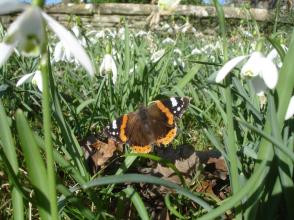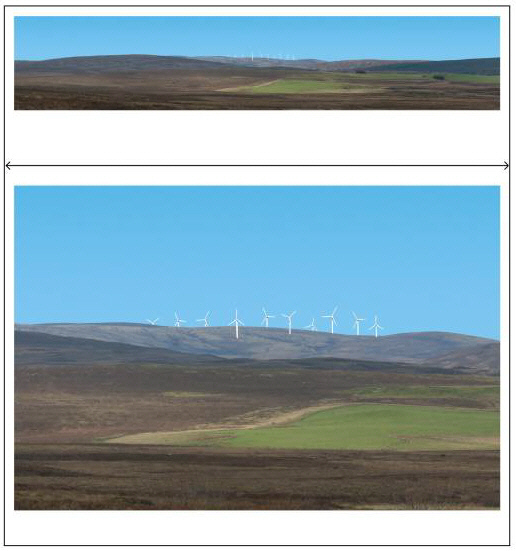Continuation of the New Statesman blog
Size matters
The most pressing problem at the moment is the success of this thread. With 650+ comments and 100,000 words it is becoming noticeably slow to load. Also the very much-improved preview plug-in that I installed at the weekend can’t cope resulting in infuriating delays when typing comments.
This thread cannot be allowed to grow indefinitely; WordPress simply is not designed for such vast amounts of verbiage. Here are some ideas about this:
1) A contributor has suggested that when there is an overload like this, a new page should be started, which seems very sensible. In this case I would move the most recent 30-50 comments to the new page. Somewhere around 400-500 comments would seem to be the limit if WordPress is to function efficiently This is NOT a plea to write fewer or shorter comments.
2) The total number of comments since the NS published Paul Whitehouse’s article on global cooling in December is heading for the 4000 mark. Although the group is now a far smaller one than it was at the NS (more about this below), it is generating comments at a similar pace and these cover a very wide range of topics. However the totally unstructured nature of the thread means that it is very difficult to find interesting and useful information that was submitted even a few weeks ago. One solution would be to open new threads (within the New Statesman Category – see right hand sidebar on this page) for particular topics. I’m thinking particularly of JZ and Max’s very interesting statistics on per capital CO2 emissions, but there are many others, such as Arctic Sea Ice, the ‘iniquities’ of the IPCC AR4 SPM etc. This would spread the load of comments among a number of threads while retaining the hurly-burly spontaneity of the main unthreaded pages as that exists at present. It would also mean that there are obvious places to post on particular topics and that these can be revisited as new development occur.
3) In response to a request from JZ I have uploaded a searchable archive file with all the pre-Harmless Sky comments here:
http://ccgi.newbery1.plus.com/ns_comments_all.rtf
Please will someone try downloading this so that I know that it is accessible to all, but beware, the file size is over 3.6 Mb.
4) Any other suggestions will be welcome.
New blood
As I said above, the group is quite a small one and it would seem sensible to think that we encourage new participants. The simplest way of doing this is always to leave a link back to the NS thread when commenting on other blogs. Example:
http://ccgi.newbery1.plus.com/blog/?p=63
You might copy this URL to a Notepad or other text file on your desktop and then it will always be handy for a quick copy and paste. If the site you are on has a button for making a hyperlink live, then remember to use this.
Before long I intend to change my domain hosting arrangements and when that happens URLs should become a bit more user friendly.
My webstats – the information that I get about visitors to the blog – suggest that there are a lot of people reading the blog, but not contributing. This seems to be common to most blogs.
The dreaded blog rules
I have said just about all I want to on the subject in this comment on the NS thread:
If you look at the top of this page you will see the title of this blog, and a strap-line that defines the subject matter that it was set up to deal with. My blogname also appears.
I do not want either world politics or comparative religions discussed here, except in the very narrow context where these topics have a direct bearing on climate, the countryside and landscapes. There are plenty of other forums that deal with such things. What happened yesterday was nobody’s fault. A stray remark got blown up into a major issue. It is in the nature of an electronic forum that this should happen; one of the unique advantages of blogging is that ideas are developed by the participation of a group of – more or less – like-minded people.
The blog rules were drafted in a considerable hurry at a time when I had no experience of running a blog and little expectation that anyone would read them. It may be time to have another look at these. But I must make it clear that, although I am very happy to discuss them (and genuinely grateful for spelling corrections), what is said on this thread has an impact on Harmless Sky as a whole, and that is obviously a matter that concerns me. At present we are averaging over 1000 hits a week and the trend is strongly upwards.
I am delighted that the NS threads have successfully transferred to Harmless Sky and astonished to see that, in the four months since this happened, over 650 comments have been submitted, amounting to over 100,000 words; the length of a 250 page paperback.
At this point I think that we need to consider a few administrative matters. Later today I will post a special page with some suggestions and a request for feedback. Please do not respond to what I have said in this comment here, but do so on the special page when it appears.
Perhaps I should add that I am very conscious of the fact that I am the host of the NS thread and not its proprietor.
I do not believe that rules should be automatically and rigidly enforced, but there do have to be one or two lines drawn in the sand if we are to escape the flaming, rancour and mindless abuse that afflicts some other sites that deal with controversial subjects. So far we have been free of it and I want things to stay that way as Harmless Sky continues to grow.
I look forward to hearing what people think about all these things. There probably will not be solutions that will suit everyone, but with luck a consensus (Oh! how can I use that term?) can be found.
The problem with comment overload on the present thread is pretty urgent.



Recent Comments